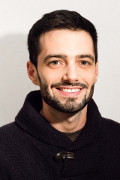Otto Kostner, MSc
Kunst aber Chemie! Chemie? Eine Kunst!
Time: 1:00 pm
Language: German
Since ancient times all fine arts are entangled with (al-)chemical crafting: artists are masters in manufacturing paints and experts in material sciences. On the other hand, scientists know how artistic it can be to produce complex chemical substances for all kinds of different purposes - many handy techniques are necessary.
Otto Kostner is a specialist in both disciplines. Since his time at the school of arts "Ferdinand Demetz da Furdenan - Cademia St. Ulrich/Gröden" and his degree in applied arts he created numerous artworks, not least elaborate sculptures. Under the label PORTRAMIX he accepts requests for individual busts made of ceramic. There he greatly benefits from his Master degree in chemistry at the University of Vienna, which gave him extensive knowledge about all the concealed characteristics of various materials. The mutual amalgamation of both his passions will be the subject of the first Chemistry a_side lecture at the Chemistry Days 2017.
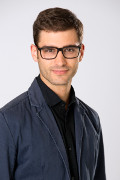
Simon Albertini, BSc BSc
A Short Story of Chemistry and Life
Time: 1:30 pm
Language: English
For a long time the belief was predominant that beings would only come to live because of a non-physical principle, called "vis vitalis", "élan vital" or "vital spark". There was the agreement that the substances found in living beings could not be produced out of inorganic compounds without the influence of this vital force. When Friedrich Wöhler synthesised oxalic acid in 1824 and urea in 1828, two typical organic substances, starting only from inorganic resources, the end of the vitalistic theory was near. Simon Albertini will give further insights into entanglements between chemistry and life. He studies chemistry and molecular medicine and and thus combines the necessary knowledge to present the subject in a masterful manner.
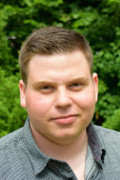
Daniel Strolz
Chemistry Is Not Everything, but Everything Is Chemistry
Time: 2:00 pm
Language: English
Far too many times we hear statements like: "I don't buy this, too many chemicals in it" or "Product XY made without chemistry". However, it is not possible to turn chemistry on and off, it's everywhere. The prejudices arise from the lack of general knowledge about the discipline's findings and operating modes. Diligent scientists need therefore to clarify the groundless concerns to banish the bad reputation of chemistry among the public. Daniel Strolz from Tyrol, who is a bachelor student in chemistry at the University of Innsbruck, tackles this important task in our minisymposium Chemistry a_side.
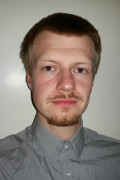
Philipp Jordan
Natural Detergents - a Self-experiment
Time: 2:30 pm
Language: English
85 years ago, "Fewa", the first fully synthetic detergent was produced. The product range has exploded since then and nowadays highly specialised washing agents are available for each type of material with all different kinds of stains. Being a laboratory technician in the field of paper and environmental technology for seven years, Philipp Jordan from Linz knows all about the chemical compositions of the complex detergent mixtures. Right from the beginning chemistry has not only been his income source but also his passion and therefore detergents have started to awaken his interest in his leisure time too. As a result, the student of technical chemistry discovered tempting natural alternatives to the standard detergents offered at supermarkets. Philipp Jordan will talk about his experiences in experiments on himself in the minisyposium Chemistry a_side.
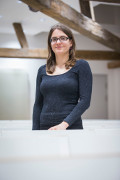
Prof. Charlotte Werndl
Philosophy of Climate Science
Time: 3:30 pm
Language: German
Climate change has been a hot topic, even before the earth-shattering change in the climate policy of the USA. Numerous scientists from various disciplines try to create a well-founded basis for sensible political decisions with their meticulously gathered research results. If science is blurred by activism, on the other hand, then it has only an unfavourable impact on the controversial public opinion. For this reason, precise and solid definitions of research objects, assumptions and methods are necessary. Philosopher and mathematician Prof. Charlotte Werndl provides those for the field of climate research to allow informed scientific reasoning on the basis of stringently derived theories. In the minisymposium Chemistry a_side, the internationally respected philosopher of science describes how essential it is to evaluate concepts under an epistemological perspective from a distance, away from the daily data collection in the lab or outside.
Excursion to RHI Magnesita with tour of plant including furnaces and chemical laboratory
In a three-day workshop, participants will learn the fundamentals of the typesetting program LaTeX.
